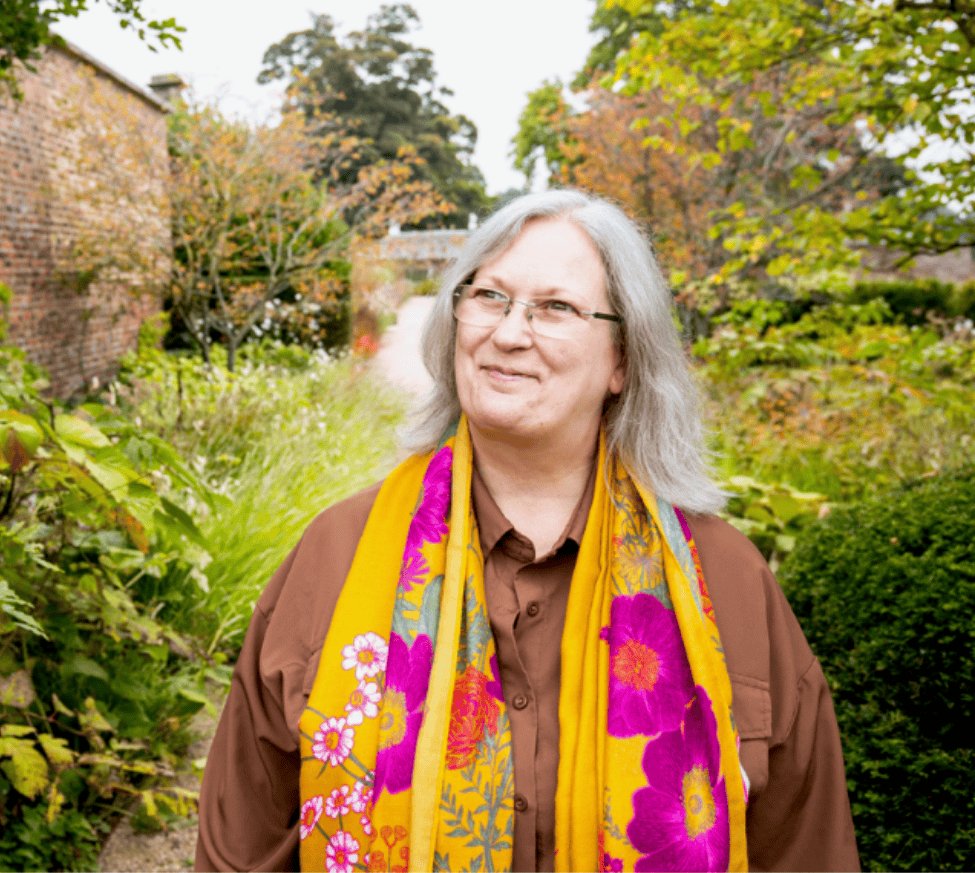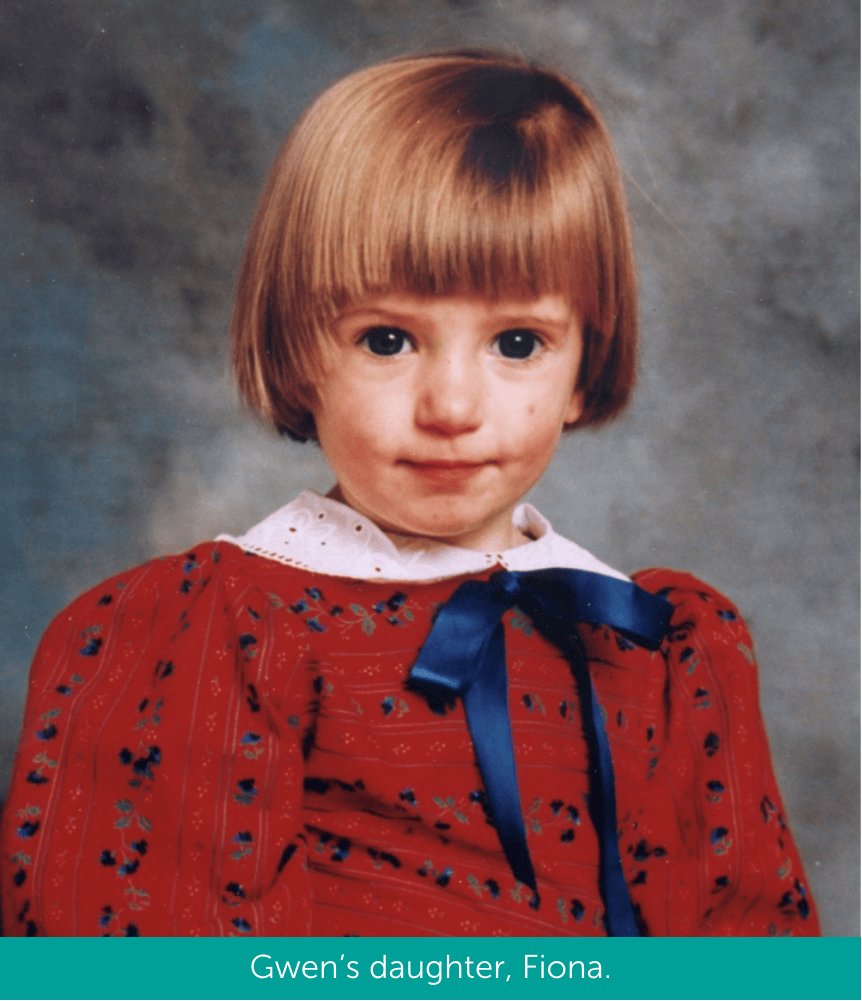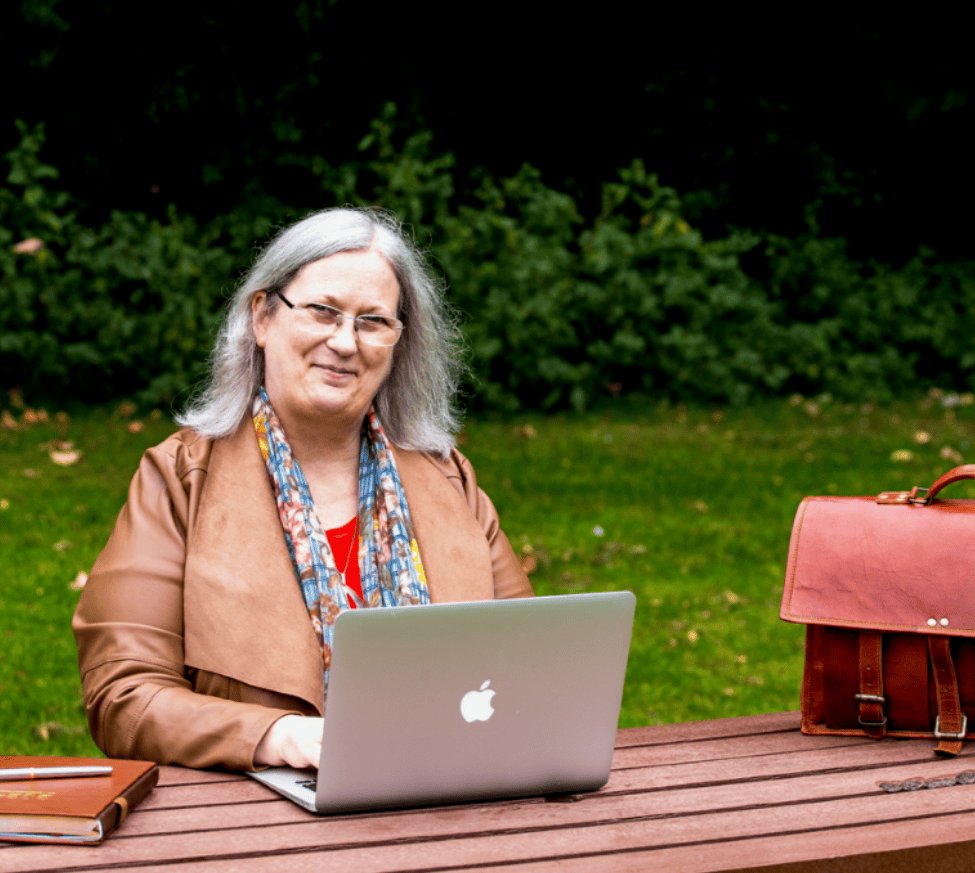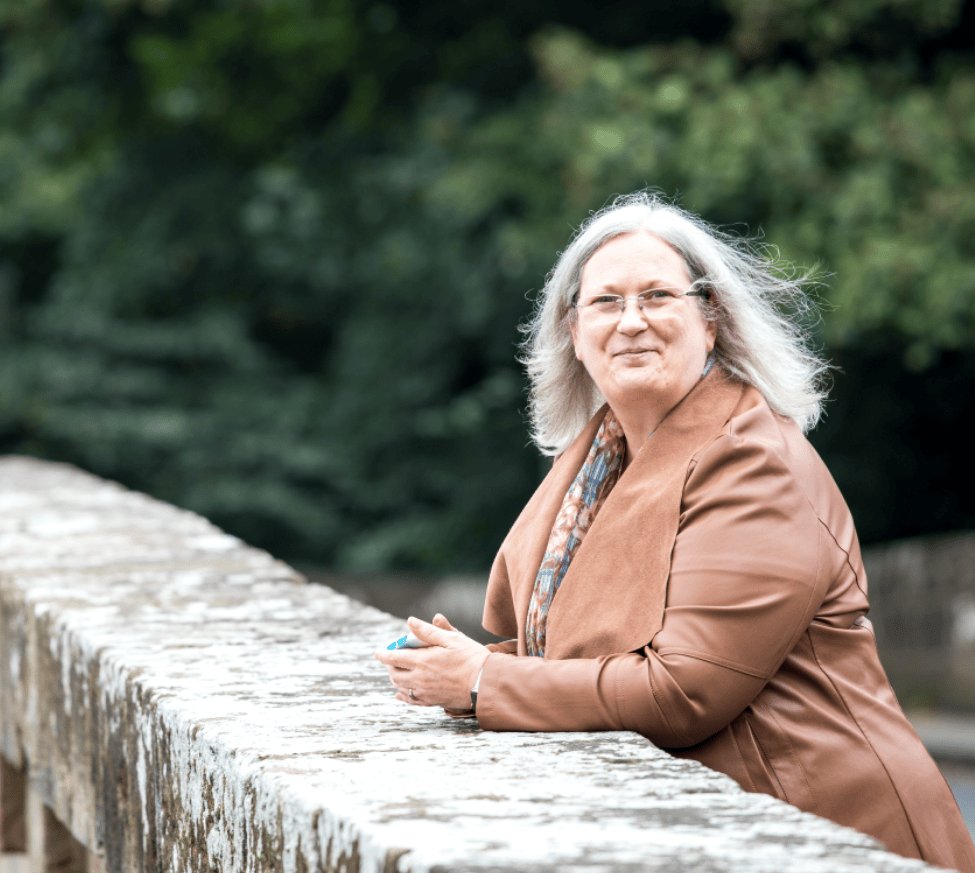Gwen was diagnosed with dilated cardiomyopathy (DCM) in August 2005. Gwen has shared her cardiomyopathy journey with us, from diagnosis to living life to the fullest with cardiomyopathy.
The diagnosis

Before my diagnosis, I had been experiencing symptoms of cardiomyopathy for around four years. At the time, I worked in a call centre from 7am to midday while my two daughters were at school. By lunchtime, I couldn’t do anything, I was so exhausted I had to sit down. Heart palpitations (arrhythmias) were a regular occurrence, but every time I went for an ECG (electrocardiogram), I was told I had nothing to worry about.
It took a long time to get an actual diagnosis, and the process was frustrating. Back then, GPs didn’t want to listen and a lot of the time, didn’t know what to do. When I mentioned I was having chest pains, I was asked if I had been in a car accident at some point, it was suggested that maybe the seatbelt could have damaged something! Even the cardiologist at the local hospital told me, ‘Gwen, I don’t know what to do with you as I open people up, fix them and send them home. With you, I can’t do that…’.
It was only when I was referred to The Freeman Hospital in Newcastle upon Tyne, which specialises in heart transplants, that I finally made some headway. After four years of uncertainty, finally, I had an answer, and I was diagnosed with dilated cardiomyopathy (DCM).

I do have a family history of cardiomyopathy. Both my dad and my middle daughter Fiona had DCM, so I was very much aware of what it all meant. My dad, Hugh, received his diagnosis at 42 - the same age I was when I received mine. He had a heart transplant but caught an infection after and passed away at the age of 48. My middle daughter, Fiona, also had DCM. In February 1992, Fiona never regained consciousness after her heart transplant and passed away within a month of her second birthday.
My GP knew I had a family history of cardiomyopathy, but I was told it wasn’t a hereditary illness (of course, we know differently now!). This put me somewhat at ease, but I knew it wasn’t normal to not have any energy to play with my children. Whenever I felt my heart racing, I thought of my dad. Deep down, I knew it was something more than a cruel coincidence that my symptoms matched his.
When I got my diagnosis, I was scared. All I could think was, ‘Dad was dead within six years. I’ve only got six years to live’. I didn’t know anyone else with the illness who’d had a different experience that could give me hope.
At the time, I was also separated and divorced with two surviving daughters, Jenny and Victoria, who were aged 18 and 11 at the time. I couldn’t see a positive future, and I upset myself thinking about the girls growing up without me when I was gone.
Living with Cardiomyopathy
Before losing my dad and Fiona, I thought heart conditions were something older people – like grannies and grandads got. I assumed it was something you only had to think about as you got older. At the time of my diagnosis, we didn’t have access to social media like we do today, and heart conditions weren’t something you saw often on the TV or in the newspaper. It was only when I was diagnosed at aged 42 that I thought – wow, 42 isn’t old at all! I have since learned that heart problems can affect everyone, from unborn babies to people in their late nineties. There’s no rhyme or reason, so it’s better to be aware of what can happen and educate yourself on what to look out for.
As my symptoms worsened after my diagnosis, I found employers were not supportive. I had to rethink my job as a sales agent, which involved carrying heavy sample suitcases up and down the country. I tried a few ‘employed’ roles, but it became clear that inflexible working conditions were not going to allow me to look after myself and still have a career.

In 2014, on my journey with DCM, I took the plunge and became self-employed in the online world. It’s the best thing I’ve ever done! I am now a fully certified Business Coach and help others who are living and working with invisible illnesses, to run successful online businesses and make money. You can still be successful whilst navigating life with chronic illness - invisible or not. We all have choices, and I choose success and raising awareness.
My diagnosis meant that hobbies were curtailed too. I used to love going out for long coastal walks, leaving the house first thing in the morning and coming home in the early evening. I had to find an alternative hobby, something I could cope with that lies within my capabilities. For me, that has been photography, which doesn’t take too much energy.
Relationships do get strained. Alongside coming to terms with your own diagnosis, you must deal with other people’s opinions. Comments like, ‘You look well’, ‘just take it easy and you will be okay’ and ‘you’re no fun anymore’ can be infuriating. Other people forget about your diagnosis, but you are reminded daily as to what is going on. I am very lucky to have a supportive partner, who very much gets it.
The trauma of losing both Dad and Fiona, and their heart transplant journeys, very much stayed with me. However, after the initial fear, when things settled down and I got the right care, a positive mindset went a long way towards helping me cope. My life has changed out of all recognition, but not all for the worse. I am a more positive person and filled with so much gratitude because of this. You always have that niggle - how much time do I have left? However, you do appreciate life more because it isn’t promised to you, so you make the most of every day. I don’t let cardiomyopathy rule me. Life can be fun again in so many ways you didn’t think possible.
Cardiomyopathy is now a way of life for me, and I choose to keep positive whilst staying mindful of my limitations. Yes, I get out of breath and the fatigue is real; however, I know my body and respect what I can and cannot do. My most energetic time of day is the morning (after 4pm, I am useless!). So, I prioritise doing my most important tasks when I first wake up. I’m also very careful with my nutrition. My body lets me know when I eat too much rubbish, and I am very aware of trying to mitigate the effects that long-term medication usage can have on your body. On some good days, I can manage to go for a walk, provided the ground is flat. I used to absolutely love flying, and there is nothing I would love to do more than go and lie by a pool abroad. These days, I love to take my dogs to a cottage in the Scottish Highlands, shut down, relax and recharge the batteries – bliss!
Very sadly, my daughters Jenny and Victoria, have been diagnosed with DCM (Jenny received her diagnosis just a few months ago). Straight away, I thought, ‘Oh no, this is my fault, I am responsible for this!’. But you can’t think like that. Instead, I feel gratitude that it’s been picked up through modern-day screening and that they are accessing medication and treatment far earlier in the process than my dad, Fiona and I ever did.

Because it’s been caught so early, they live a virtually normal life. Jenny and Victoria’s prognosis, at the ages of 37 and 30 respectively, is highly positive. Plus, no one is better placed to support them than a parent who knows exactly what living with the condition is like. We even go to double appointments! When I was first diagnosed, my dad’s history felt like a death sentence, whereas my experience shows both of my girls that where there is life, there is hope.
The support I received from Cardiomyopathy UK has been invaluable. They were there at a time when I very much needed them.
Back in the pre-Facebook era, the Cardiomyopathy UK support group became my lifeline. I would log on to the live chat for one hour every night. From people looking for general chit-chat and friendship, to those who were waiting for heart transplants and in need of support, there were all kinds of visitors to the site. To this day, it’s one of the best networks I have ever come across.
When you have a diagnosis like cardiomyopathy, you feel like you have to safeguard the feelings of the people around you - as if you have to put on a brave face. In the group, I felt I could truly be myself with others who totally got it. You might say to your partner, ‘I’m really tired’, and they would say ‘go to bed then’. In the group, people understood that it’s a different kind of tiredness; one that going to bed doesn’t solve. As part of the group, I felt like I had permission to laugh with others. We found dark humour in our shared situation, and that was okay. We all lifted each other when some members tragically passed away while waiting for heart transplants.
I have been involved in fundraising for Cardiomyopathy UK back when they were the CMA (The Cardiomyopathy Association). Fiona was the 100th paediatric heart transplant performed at Harefield Hospital, and The Fiona Baird Trust was set up in her name. Thousands of pounds were raised, and all put to good use in helping raise awareness for children with cardiomyopathy.
Our support groups are an opportunity to find out more about cardiomyopathy and meet others with the condition. We offer both in-person and online groups which enjoy regular meetings, often with expert speakers and social activities.